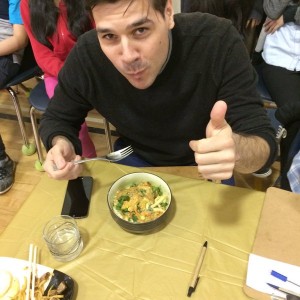As I continue to synthesize my understanding of the homework through the inquiry process by continuing to return to the question on a weekly basis I have grown very close to the subject. So often in my classroom I find myself considering whether or not if homework creates the right value for homework.
Last Thursday I found myself finishing up a a lesson from the previous week and I was VERY tempted to assign some homework. There was an “explain” portion of an experiment that I want to assign for homework in lieu of doing it in class because the students were very motivated to work on their paper roller coaster projects. I ended up putting the question to the class. Would like to work on the paper roller coasters right now? A resounding “YES” reverberated through the classroom. I was perfectly find with that response but informed the students that they would have to do the “explain” portion of the worksheet for homework. A even more emphatic “NO!!!!” screeched from the children after I proposed that idea. I ended up working with the class to finish.
Noticing the student’s absolute horror at being assigned gives me some more insight. Really it just affirms what I already know to be true: that homework for the most part is just not fun.
On that same Thursday, however, I witnessed an incredible display of how “homework” can be inspiring and bring a lot of energy into the classroom. As I have continued to explore the idea of homework I have regularly come back to the idea of making “at home connections” to “the classroom.” This was wonderfully expressed on Thursday as The Illegal Cooking Suite project had reached the “finalist” stage. The Illegal Cooking Suite was a challenge where students would create a dish, bring the ingredients to school, and then cook their dish in front of the class. Student success ranged throughout the projected but for the most part students were engaged and genuinely interested in presenting their food to the class. Winners of the in class round made it to the finals.
The Illegal Cooking Suite finals took place in the David Livingstone gymnasium. Three students set up their cooking tops in a U-shape so they could all cook while simultaneously watching each others progress. 70 students crammed into the gym to watch the event. Roars and screams could be heard throughout the school. An unknowing observer might have thought the Beetles were performing. The students went absolutely bananas for this event.
This sort of event, in my opinion, is a wonderful example of meaningful homework. Students went home excited to figure out what to cook and how to do it. The passion for the project was fantastic to see. And the connections between the home, the community, and the school were improved as a result of the project. Parents of the finalists were invited to watch their children perform.
One of the perks of being a student teacher is that they throw you into the middle of everything. I was chosen to be a judge for the event. It was a bit of pressure for me considering that I was being relied on to be a food expert while the event was being live streamed to the entire school!

As the doge dog would say:Wow! What foods! Such tastes! Incredible! The quality of the food that these three students were able to create was beyond what I would have ever imagined. The community building aspect of the project will remain for the rest of the school year and beyond. The connections from school to home were solidified.
As my title suggests, meaningful homework can definitely lead to student success and this project was perfect evidence of that.
Mr. Green was blown away!